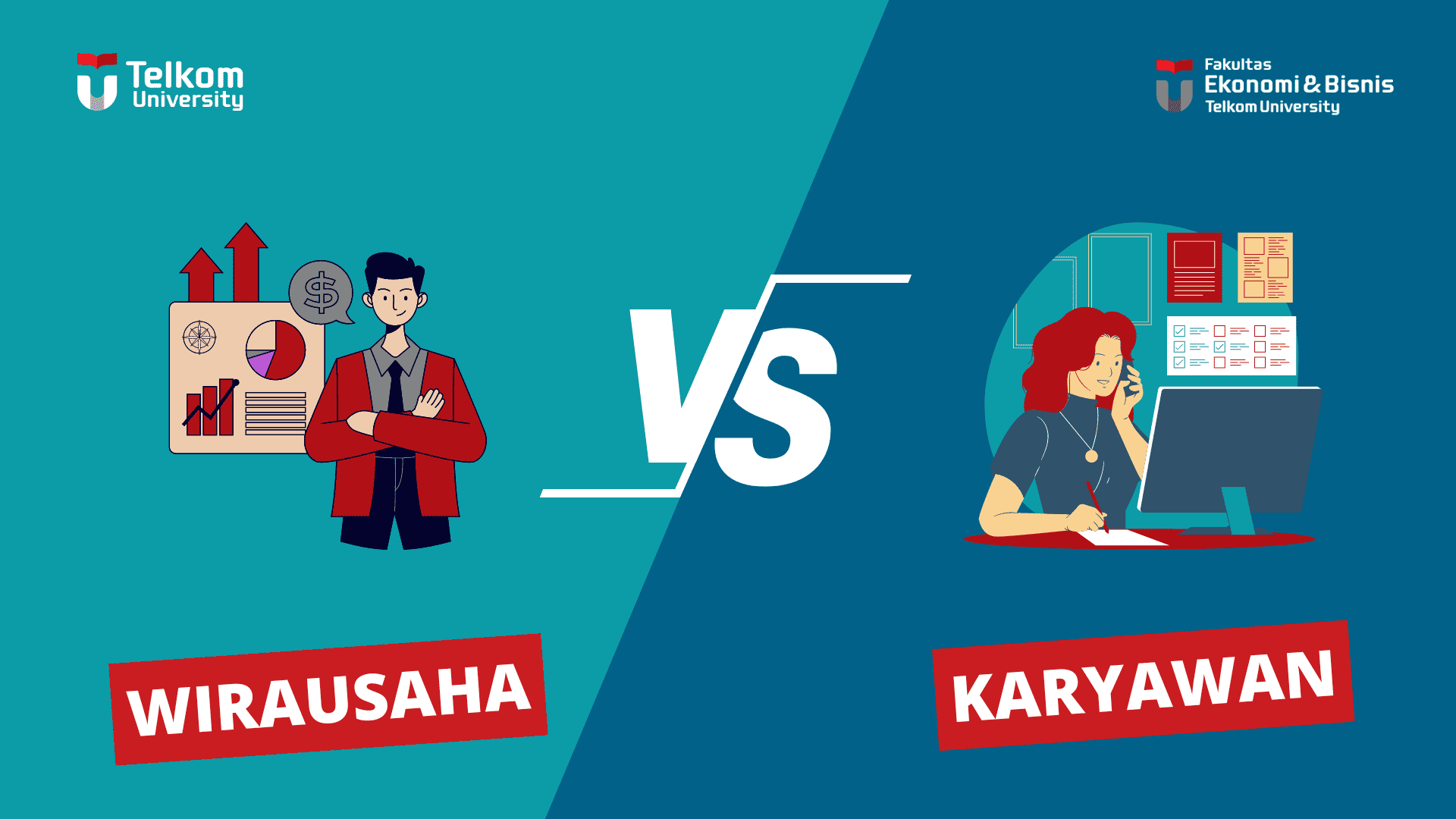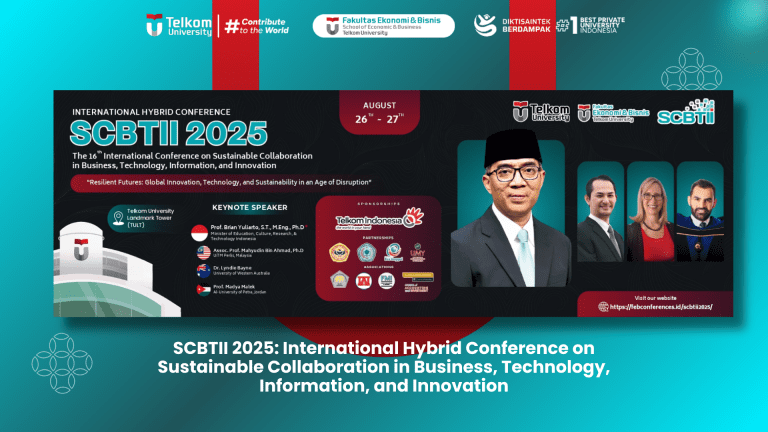Understanding the difference between entrepreneurs and employees: career choices that suit your lifestyle
Choosing between being an entrepreneur or an employee is an important career decision that impacts various aspects of an individual’s life. Both have different advantages and challenges, so understanding the differences between the two can help you make a choice that suits your life goals and way of working. This article will outline the key differences between entrepreneurs and employees, and how an education at Telkom University’s Faculty of Economics and Business can prepare you to pursue either career path.
Autonomy and control
– Entrepreneurship: As an entrepreneur, you have full control over the business. This gives you the freedom to make important decisions that will affect the direction and development of your business. This autonomy offers flexibility in business operations, but also demands great responsibility in risk management and strategic decision-making.
– Employee: As an employee, you operate within an organizational structure where key decisions are usually taken by superiors or management. While there are limits to autonomy, employees generally have more focused responsibility for specific tasks assigned by the company.Income and financial security
– Entrepreneurship: The earning potential for an entrepreneur can be very high, depending on the success of the business. However, this income is often inconsistent, especially in the early phases of the venture. Entrepreneurs must also be prepared for the risk of loss and need to have a solid strategy for managing business finances.
– Employees: Employees generally receive a fixed salary that provides financial security. While there are limits to income growth, such as promotions or bonuses, employees tend to enjoy greater financial stability compared to entrepreneurs.Time flexibility
– Self-employment: Entrepreneurs have the freedom to determine their own work schedule. However, this freedom often requires them to work longer hours, especially in the early phases of business development, to ensure smooth operations. This flexibility also poses challenges in maintaining a balance between personal and professional life.
– Employees: Employees are generally bound to the working hours set by the company. While there are limitations in terms of flexibility, employees often enjoy more regular and stable free time.Responsibilities and risks
– Entrepreneurship: Being an entrepreneur means taking responsibility for all aspects of the business, including planning, operations, marketing and finance. This carries significant risk, but also offers the potential for great rewards if the business succeeds.
– Employee: As an employee, responsibilities are limited to the roles and tasks set by the company. Financial and operational risks tend to be lower, however, the potential rewards are not as great as those of an entrepreneur.
The role of Telkom University’s Faculty of Economics and Business
Telkom University’s Faculty of Economics and Business has a crucial role in preparing students to understand and choose an appropriate career path, either as an entrepreneur or employee. By providing a comprehensive program in entrepreneurship and business management, the faculty provides a deep understanding of the challenges and opportunities that exist in today’s world of work.
- A curriculum that focuses on entrepreneurship and management: The faculty offers courses such as “entrepreneurship” and “strategic management” designed to provide insight into how to start and manage a business, as well as how to be a competitive employee in an organization.
- Support for career development: Through various programs such as internships, seminars, and training, students are given the opportunity to enhance practical skills that suit their career choices, whether as entrepreneurs or as employees.
- Business incubator: Telkom University provides a business incubator for students interested in becoming entrepreneurs, which supports the development of business ideas to the implementation stage. It is a platform that allows students to explore the world of entrepreneurship in a conducive and organized environment.
Summary
Choosing between the entrepreneurial or employee path is a crucial decision that must be tailored to an individual’s character, life aspirations and way of working. Both have advantages and challenges that need to be considered in depth. With a comprehensive understanding of the differences between the two options and adequate educational support from Telkom University’s Faculty of Economics and Business, you will be better prepared to face career challenges and achieve success in the future.




